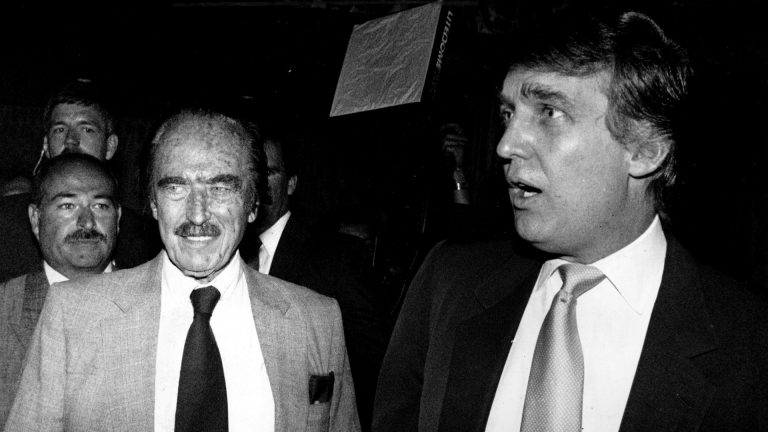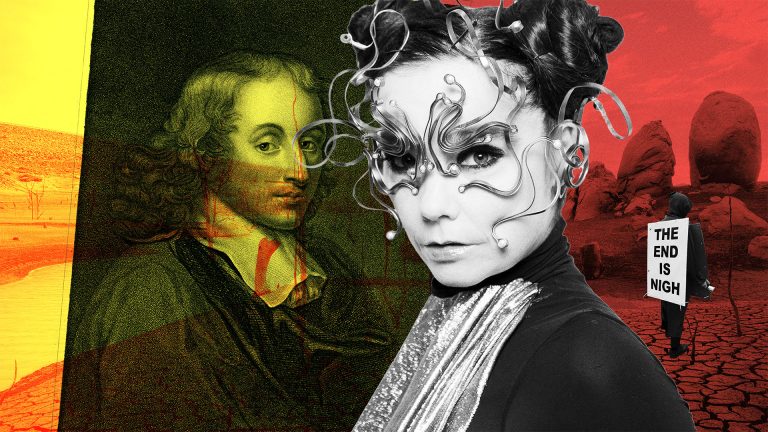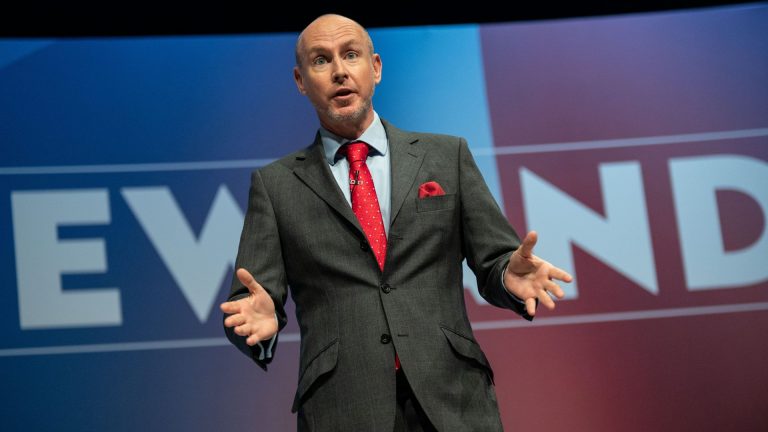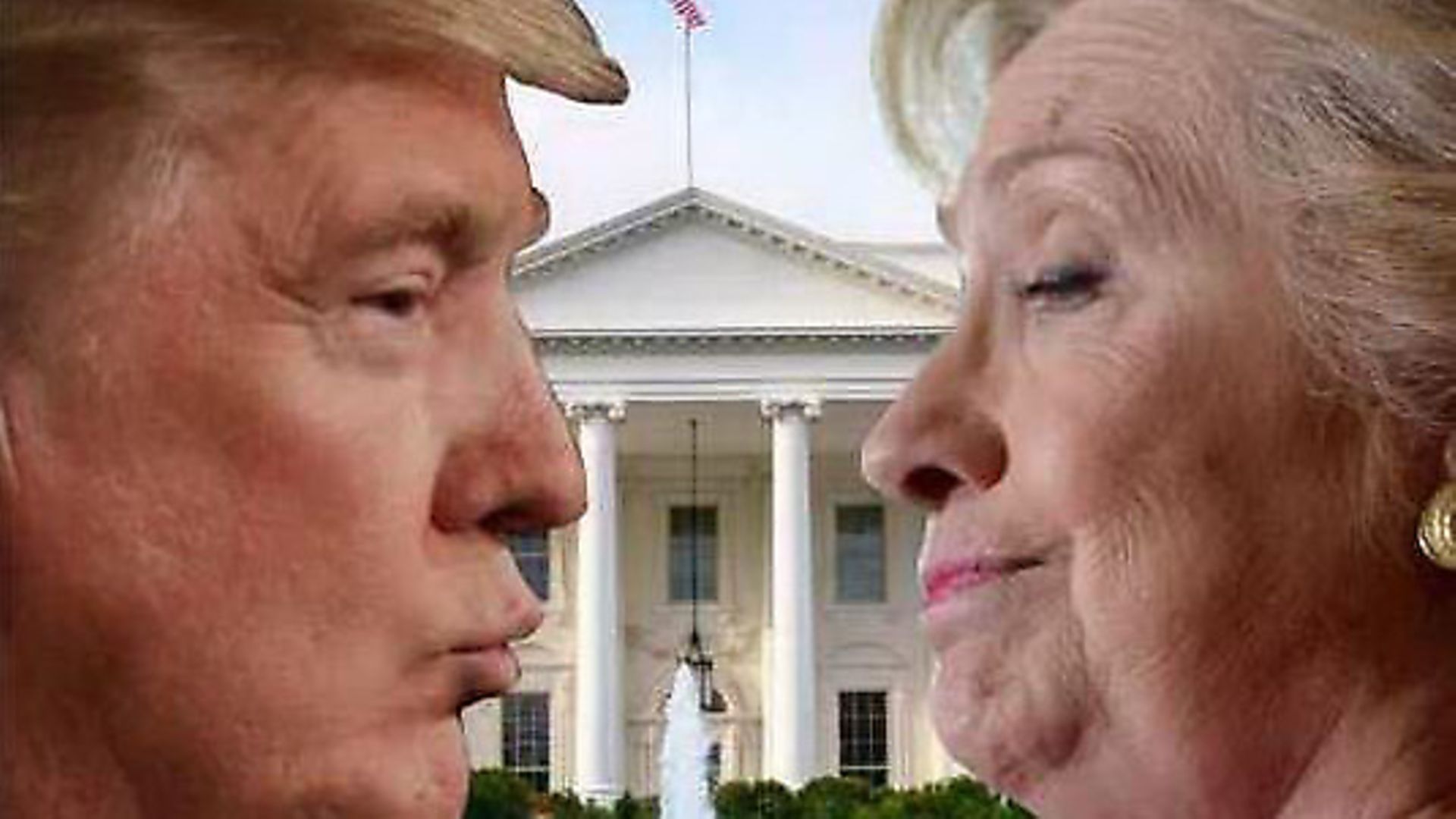
Can America recover, regardless of who ends up in the White House? Michael White explores the deeps roots of America’s current predicament
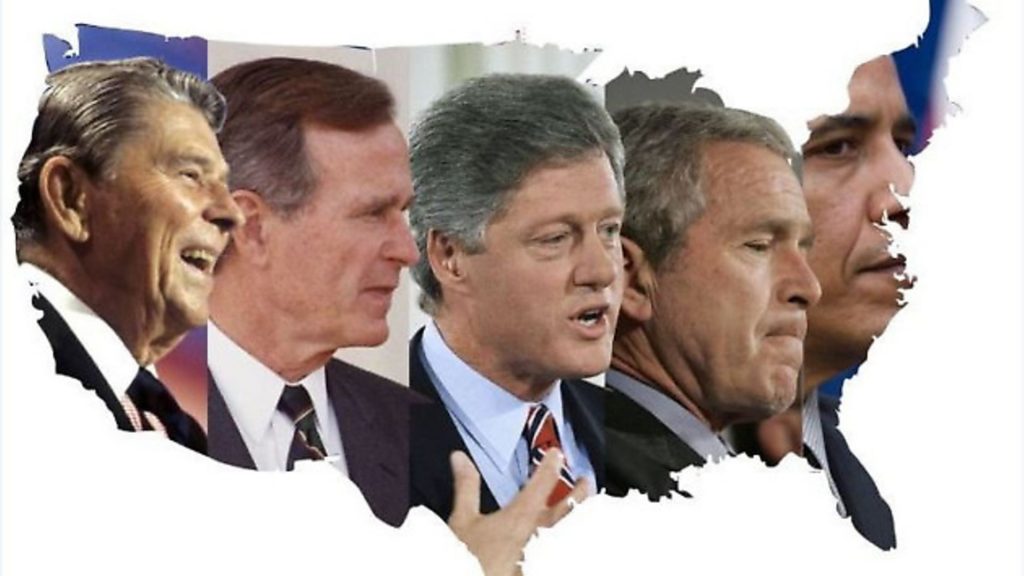
Just 43 years ago on October 20 1973 Richard Nixon triggered what became known as Washington’s ‘Saturday night massacre’ in which the United States Attorney General and his deputy resigned rather than obey orders to fire Archibald Cox, special prosecutor in the rapidly unfolding Watergate burglary inquiry. The beleaguered president found someone else in the Justice Department who would do the deed and took another step towards the impeachment proceedings which resulted in his own resignation ten months later.
Some reporters in the US capital that weekend later wrote of the shock they felt that the most powerful country in the world might be at risk of an unconstitutional coup, martial law and the apparatus of autocracy so familiar to the south in Latin America – and elsewhere round the world. But the rule of law prevailed, resulting in senior Nixon administration officials – the ‘Watergate Seven’ – being among the 48 men convicted (69 were charged). They were found either to have been involved in the raid on the Democratic National Committee’s (DNC) HQ in the anodyne Watergate apartment building a few blocks west of the White House or part of the notorious cover-up. Nixon himself had to be pardoned by his successor, Gerald Ford, the only person ever to occupy the Oval Office without being elected to the job.
It had been touch and go.
Such anxieties are commonplace in many countries at moments of crisis. Britain itself is still far from being secure from the divisive fallout of June 23’s existential Brexit vote. Old states can succumb, some young states demonstrate remarkable resilience. But the US has long been seen as the sheet anchor of a (relatively) stable world order. As the ugly 2016 presidential election reaches its climax, Washington again faces a serious challenge to constitutional order.
Will the result of this ‘unpopularity contest’ between two flawed major party candidates be accepted as legitimate by the losing side, especially if Donald Trump loses? Can another Clinton presidency regain the public trust it has squandered by perceived greed and double dealing? Is such a volatile and demagogic narcissist as Donald Trump remotely qualified by character or experience to be president? The US has suffered some dark moments, but there has been nothing quite like this since the Founding Fathers, less saintly than now imagined but still formidable public servants, met to devise a workable constitutional compromise at Philadelphia in 1787.
Back in 1973 the republic’s foundations had survived the major political earthquake that was Watergate. By the time I arrived in Washington as the Guardian’s correspondent in January 1985 the imperial capital of the West was calm – a two foot snow fall helped – under the serene presidency of Ronald Reagan, who was about to begin his own second term at the age of almost 74. The first time I watched a Reagan press conference even I, a newcomer, could spot so many mistakes that I thought ‘the old boy will have to resign now’. But a White House presser isn’t PMQs and he stayed put. Small sidebar articles next to the verbatim transcripts in major newspapers (this was pre-internet) explained that ‘the president misspoke on the following points’. The corrections were attributed to his soft-spoken spokesman from Mississippi, a Mr Speakes.
There was much to criticise in Ronald Reagan’s policies and I spent the next four years doing it. From the illegalities of the Iran Contra arms affair (weapons secretly sold to the ayatollahs in Tehran to raise covert funds for the anti-communist rebels in tiny Nicaragua) to the ballooning budget deficit and the renewed cycle of plutocratic inequality, Reagan’s sunny talk of ‘morning in America again’ was at variance with many harsh economic facts nowadays impossible to ignore. But the old Cold Warrior also established an effective relationship with Mikhail Gorbachev, the reformist leader of the then USSR, which culminated in serious détente and the 1989 fall of the Berlin Wall. There were scary moments, nasty ones too, and few noticed the decade’s real story, China’s re-awakening as a world power after its 500 year slumber.
But the negatives were offset by Reagan’s cheerful ‘ah, shucks’ character. When he tackled the age question by saying ‘I am not going to exploit for political purposes my opponent’s youth and inexperience’ during a 1984 TV debate, even his opponent, the Democratic nominee, former Vice President Walter Mondale, 56, joined in the laughter. In that moment you knew it was all over. ‘People say hard work never killed anyone, but I say ‘why take a chance?” was another Reagan zinger.
Yet in backing the laid back ex-governor of California for the White House in 1980 the Republican Right was building a trap for itself that has ended in an insurgent Trump candidacy that frightens both the party’s long feuding wings: the old East Coast liberal Republican elite and the intellectual ‘Old Right’ conservatives of the 1950s who reacted to Keynsian economics (those required by the Great Depression and the Second World War) by reasserting the virtues of limited government, strong national security, the family and (as always) lower taxes.
One of Reagan’s more unsettling jokes had been: ‘The nine most terrifying words in the English language are ‘ I’m from the government and I’m here to help.” Tell that to the New Orleans victims of Hurricane Katrina, actively neglected before and after the event by the government of George W Bush. The younger Bush’s mishandling of the occupation of Iraq (2003) and pre-crash Wall St (2008) also did much damage to the conservative cause, but his ‘compassionate conservatism’ trope in education and his gentler embrace of Latino immigration were not a complete break with the past. No Mexican walls for this adopted Texan.
In his memoirs, The Age of Turbulence, Alan Greenspan, five times chairman of the US Federal Reserve (and a disciple of the ‘objectivist’ free market philosopher, Ayn Rand), ruefully regretted his own failure to grasp how careless major banks would be about their own reputation for probity. But he also admitted stress about the way Washington had polarized in the decades between the Ford presidency he served (1974-77) and that of George W Bush (2001-09). Even old friends from the Ford team like Donald Rumsfeld and Dick Cheney seemed to have abandoned pragmatic conservatism for ideology. Democrats and Republicans on Capitol Hill no longer attended each other’s parties. Greenspan wasn’t comfortable, though he stayed on until just before the bankers’ car crash.
All that seems wholesome light years away from the political climate in November 2016. The concept of an ‘October surprise,’ an unexpected political event (real or confected) that tips the presidential result in one direction, has been around at least since 1964. In that campaign the Moscow coup which overthrew Nikita Kruschev and China’s detonation of its first atom bomb (both very real events in the final week) helped President Lyndon B Johnson see off Senator Barry Goldwater, the first Republican nominee of the new conservative wave. This year the October surprises – allegations of sexual misconduct against Trump, about money from the Clinton Foundation, and about Hillary’s emails, plus a politicized FBI – have come thick and fast. Clinton should be on course to victory, possibly a big one. But in the present craziness no commentator should sensibly predict the result until the votes are counted, possibly not even then. On the slippery slope towards populist disorder the Bush/Gore ‘hanging chad’ ballot dispute in Florida (2000) will deserve more than the footnote usually given to JFK’s ‘stolen’ votes in Chicago which delivered crucial Illinois in 1960.
In his old age I once interviewed ‘Gentleman Jim’ Dunne, the official in charge of Chicago’s voting that November. Unprompted by me, he reached into a drawer and produced a photocopy of the disputed election returns to show that the swing to the Democrats was fairly even throughout all Illinois’s counties. Students of election fraud (LBJ was no slouch) will know that such detail is far from proof. But the incident serves to remind us all that US elections can be pretty rough, even when election districts have not been gerrymandered (it’s a Boston word) by a state legislature in advance, as is widespread. Like much else, including paid TV advertising which fuels money politics (in quantities whose limits were uncapped by the Supreme Court in 2010), such fiddling would not be allowed in wicked old Europe.
I digress. Let us park the Green and Libertarian candidates, while noting that in 1988 Ross Perot’s third party candidacy helped undermine Bush senior’s defence against Bill Clinton and in 2000 the priggish consumer champion, Ralph Nader, got more votes in Florida than Bush junior’s fragile majority there. In 2016 Hillary Clinton vs Donald Trump is as binary a choice as it ever gets. Clinton is the continuity candidate. She may be the first woman within a whisker of the presidency, though that achievement does not seem to impress a lot of women, especially young and educated feminists. But she is a former New York senator and secretary of state who happens to have cohabited the White House and a governor’s mansion. A lifelong policy wonk, earnest to a fault and beyond, she knows it all.
And yet and yet…… some large question marks make her candidacy one which is far from ideal. At 69 age should be on of them, but her opponent is 70. As the wife of a former president she symbolizes the rise of unhealthy dynastic politics in the land of opportunity where in 2000, just eight years after a father left the White House, a son succeeded. The Bushes provided the first such family presidency since John Adams (1797-1801) fathered John Quincy Adams (1825-29) as second and sixth president. It happens elsewhere, especially in South Asia, even in British Labour cabinets – Milibands and Balls-Coopers – but it highlights the elitist paradox of modern democracies: the political class is too often drawn from too narrow a circle.
Clinton’s inability to do small talk, her lack of retail political skills, especially when set against her husband’s easy capacity to engage at any emotional or intellectual level, is a handicap, albeit not a disbarring one. But Bill Clinton’s record and personal conduct in office have accentuated the character question for his (‘I’m not sitting here… like Tammy Wynette’) wife.
Mrs Clinton is instinctively secretive and, as those leaked DNC emails confirm, she makes some bad judgment calls. What does she stand for, apart from the pursuit of power? Certainly not for global free trade if her campaign U-turn against the Trans-Pacific Partnership is any guide. And then there is money, cash-for-access (as Brits might put it) via Clinton Foundation donations and policy adjustments. Much of what has been long thrown at Clinton by zealous Republican hacks and shock jock radio demagogues has been malicious and wrong for decades: do you remember the Whitewater property ‘scandal’? No one else does. But there is enough there to be troubling. Many decent Americans are uneasy about another Clinton presidency.
Seen from the outside, by leaders and opinion formers in almost every country except Russia (to which we will return), next Tuesday’s contest ought to be as much a no-brainer as the Brexit referendum. Trump for President? They can’t possibly mean it, can they? Yet, as with Brexit, millions of them do. Nor is Trump’s army made up simply of poor and angry whites, economically impoverished by low educational achievement and mass immigration, by lost racial ascendancy and the loser’s share of globalization.
In Trump’s ranks are rich and insular Texans in gated communities, disappointed suburbanites who resent taxes and the cool glamour of the Obamas, the less fastidious kind of Republican intellectual and gun-toting ‘libertarians’ for whom any state enforced constraint is a breach of God’s compact with America. Even large swathes of the religious right, part of the Republican coalition since Nixon evolved his racist ‘southern strategy’, seem able to forgive the profane casino owner who boasts that he is ‘too smart’ to pay federal taxes or small contractors on bankrupt projects.
It is an old story that those who hate social liberalism, moral relativism and a regulated economy do not expect their champions to practice what they love to hear them preach. Sinclair Lewis’s charlatan preacher, Elmer Gantry, is not a solely American archetype.
And nor is Donald Trump. Americans and Europeans looked down their educated noses as Silvio Berlusconi’s bread and circuses regime in Italy, corrupt, inefficient and mezmerising. But the intervening years have suggested Berlusconi may not have been a mere outlier. From Beijing’s President Xi Jinping (with his glamorous rock star wife) to bare chested Vladimir Putin and Turkey’s ruthless Recip Tayyip Erdogan, the list of authoritarian, nationalist populists who underpin their power at the ballot box is long and growing.
Marine le Pen in France, UKIP’s saloon bar pundit, Nigel Farage in Britain, India’s Narendra Modi, champion of Hindu nationalism, Rodrigo Duterte, self-styled vigilante president of the Philippines, there is no shortage of disturbing evidence that the age of mass democracy and lawfully accountable government is in retreat as assertive nationalism shakes its fist against the post-war liberal order. There is little scope for anyone except Canadians to feel smug.
So it feels an age since Reagan could tour the world blithely assuring emerging democracies that free markets and liberty go hand in hand. The link was pretty shaky then. In Dutchman Geert Wilders, leader of the Freedom Party, even in solid Germany’s AfD, it is all much shakier now. Strange to note in passing, that Latin America, long a bastion of this form of governance – policies that may feel good, but often work badly – seems currently to be moving in the opposite direction, away from the politics of street theatre and back to familiar oligarchical control.
American conservatives of the highbrow National Review variety have long disdained mass democracy and the ascendant power of the state. But that is not what Trumpism is offering them. If he defies the hard-headed evidence of the polls and ground war organisation on Tuesday and pulls off victory it will be with the help of the latest FBI intervention against Clinton, the legitimacy of which has puzzled more fastidious Republican lawyers.
If George HW Bush (1989-93) was a throwback to East Coast ‘Rockerfeller Republicanism’, after Reagan aligned the party conservative wing to the angry ‘New Right’ populism of the south and west, Trump represents a break with all but the anger of the dispossessed.
In his essay, The Paranoid Style of American Politics,’ the historian, Richard Hofstadter, observed 50 years ago that what he called ‘pseudo conservatives’ of the Trump variety are actually anything but conservative. Like America’s conspiracy minded populists of the nineteenth century – obsessed with the threat posed by Freemason, Jews, Catholics, blacks or Irish and other ‘agents of Satan’ including the gold standard and fluoride – the McCarthyites and the John Birch Society (communism was their obsession) both revered the constitution and prepared to overthrow it.
Like Millennialists in every age and place they combined what Hofstadter called ‘conventional, authoritarian submission’ with violent and destructive impulses towards those they accuse of spying on, plotting against and betraying them. No wonder the mere mention of ‘that wicked woman’ at a Trump rally prompts roars of ‘Lock her up.’ This is the politics of the witch hunt in Arthur Miller’s Salem.
Yet Trump’s character, his self serving business record, his volatile instability and reckless use of language, his total inexperience of and contempt for government, not to mention women, Afro Americans and Latinos, frighten political philosophers. Did not Socrates warn that the longer a democracy lasted the more uninhibitedly democratic it would become until it became ripe for a tyrant to seize power and restore order?
Equally disturbed, at dinner parties from New York to San Francisco’s silicon masters of their virtual universes, have been psychologists who have watched Trump’s evident narcissism in play on TV, as he evolved from outsider freak show braggart to prospective president. Secular America’s politics have always been soaked in religious imagery (the US as ‘a shining city on a hill’ dates from the seventeenth century, but with the sharp decline of both religious feeling and of hierarchy, some wonder if Trump is the long feared man on the white horse. Will his manipulative reality-TV skills allow him to become a grotesque sounding board for Middle America’s fears of lost identity and values destroyed by encircling ‘otherness’?
Never mind if the Russians – the staple focus of ‘otherness’ since 1917 until militant Islam destroyed the Twin Towers – have been hacking DNC servers and leaking material designed to damage hawkish Clinton’s chances. Never mind that the adopted Republican candidate whose dubious business dealings in Russia, known to the FBI but not yet (as I write) published, incited the Kremlin to hack a bit more.
A great swathe of white Americans, their jobs shipped overseas, their wages stagnant, their homes under threat, their status undermined by their black compatriots, Latinos and Asian immigrants, are angry enough not to care. If the elites on both coasts who mock their values on TV are in favour of something – Clinton for example – they are determined to be against it.
UKIP’s Nigel Farage’s visits in support of the Trump candidancy (so much for non-interference in sovereign states) made explicit what more liberal Leave campaigners like Boris Johnson denied. Trumpism is a first cousin of Brexit, Sarah Palin nativism on amphetamines. Screw you all! The Donald won’t publish his tax returns? So what. They’re all crooks in Washington. At least Trump speaks the truth, reply the truthifiers, angry enough to vote for a political arsonist. The conspiracy cranks, usually a fringe nuisance, must feel their hour is at hand.
Whatever the overnight outcome on Tuesday the Clinton vs Trump contest will (at best) stand as an indictment of the political class. It has failed to take decisions it judged too risky or unpopular. It has neglected mainstream education, including civic education, and refused to enforce red lines both in Syria and in what passes as acceptable behaviour in countless ways at home. It has left too many people rotting in unfulfilled idleness in city ghettos and abandoned industrial towns, fit only to watch an ever smaller number of fellow citizens indulging their own folly on escapist cable TV. There is too much Kim Kardashian, not enough Tom Hanks, self absorption too often beats stoicism.
What passes for leadership has not stood up to the voters either, for failing to instil discipline and hard work (but not obesity) in their children, not least by example. Trump may be a charlatan and an alleged serial groper, but it is Clinton who has been humiliated by her husband’s assorted misconduct and by the ‘sexting’ antics of Anthony Weiner, the estranged political husband of her former aide. Role models is not a phrase that comes to mind. A divided Congress fights for short term partisan advantage in ways that flatter China’s emerging strength. Corporations park their untaxed loot abroad and go un-shamed.
All is not lost, it never is. ‘Vote for the crook and not the Nazi’ as middle class car bumper stickers said when a dodgy Democrat stood for re election as governor of Louisiana against a Klu Klux Klan Republican (and they did). After all it is only eight years since the arrival of Barack and Michelle Obama and their wholesome kids in the White House provided America with a much needed tonic after years of defeats and disaster.
Many of Obama’s decisions have legitimately been challenged and Obamacare is definitely still a work in progress. He has failed to bully the bullies. But his integrity remains intact. And so do the 4,608 words of the US Constitution. American optimists, still a majority, believe it is strong enough to withstand an assault – let us be evenhanded – by either winning candidate. In testing times let’s hope for all our sakes they are right, as champions of the ancient Roman Republic proved not to be. Fingers crossed.
Michael White is a former Washington correspondent and political editor of the Guardian

